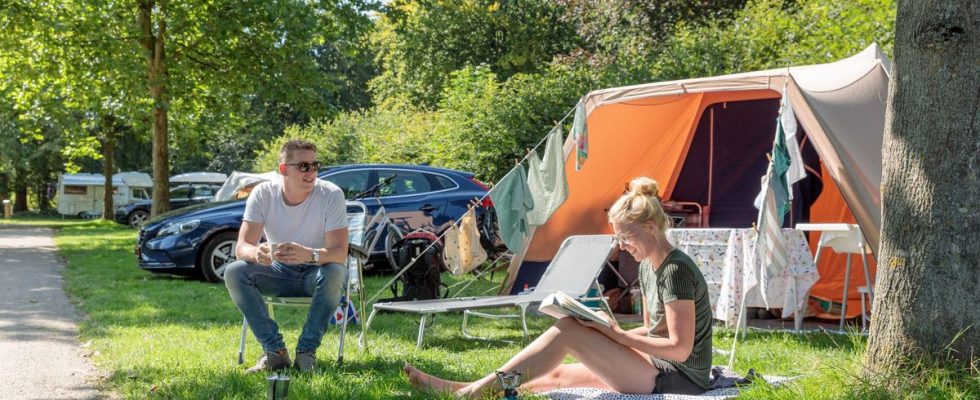“Such calm, with trees, the edge of the Seine and at this price, it’s almost impossible to find I think. Antoine is rather proud of his discovery. For less than 45 euros a night, he was able to sleep at the Paris campsite, in a tent, in the heart of the Bois de Boulogne, just 6 km from the Eiffel Tower. “Of course, it’s better if the weather is nice. But for my three day weekend it was spotless. You could even eat on site and rent bikes. I would never have thought of it if I hadn’t been told about it. Their existence is actually little known, but there are about ten urban campsites in France, in large cities. Some offer top-of-the-range services, like that of Nantes (5 stars)others are a bit more popular, like at Rennes (3 stars). But all have benefited, for several years, from a rating of hell.
Their geographical location, coupled with the renewed enthusiasm for outdoor accommodation, make them popular alternatives to Airbnb hotels and rentals. The Huttopia group has even launched a specific network called CityKamp, by buying and modernizing existing sites since 2005. It now includes campsites in Paris, Lyon, Strasbourg, Colmar and Angers.
“There was a desire to create a different offer to provide an experience that is both urban and natural,” explains Clémentine Massat, Marketing Director of Huttopia. We offer a wide variety of accommodation ranging from wooden chalets with a capacity of 6 people to pitches for pitching a tent or a motorhome. In general, we are about fifteen minutes from the city center by bike or by public transport. »
“We breathe, there are games, often a swimming pool”
The customer profile is much broader than a seaside resort or mountain campsite. First there are the tourists, of the type city breakers looking for good prices. “Rates are accessible to all budgets, much more than in hotels. It’s an argument that counts,” observes Clémentine Massat. Even if they are less profitable for operators, bare pitches, the least expensive, generally account for at least half of the accommodation offer of urban campsites. Another customer profile: families, on short stays with their children. “When you’ve spent the day discovering a city, it’s not always pleasant to find yourself in a 15 m² apartment with your children. When camping, you breathe, there are games, often a swimming pool, a catering service. There is no need to come out,” observes Clémentine Massat.
Finally, especially visible in rentals, there are customers choosing the campsite during their professional activity. “They come for seminars, fairs, or specific missions. Some share a mobile home for two for five days. I had several Airbus employees, for example. I also had an airplane pilot who stayed with his family for two months while finding accommodation. They are more independent than at the hotel, they take advantage of the swimming pool. Some are also looking for animation, exchanges. They don’t just collect the keys at reception,” says Luc Bonnaud, director of Nantes camping, whose turnover has doubled in ten years. Other trends cited by operators: the emergence of van life and cycle tourism. “We have more and more cyclists every summer. I sometimes have to refuse,” says Luc Bonnaud. So much so that he is considering in the medium term “adjustments to be able to receive more”.
“Opening a campsite in town has become unthinkable”
Aware of the potential, owners of urban campsites are rubbing their hands. Because the competition is extremely limited. “It’s a fairly unique model, with great growth prospects,” admits the marketing director of Huttopia, whose CityKamp network is studying the possibility of buying other campsites in Europe. The only way to be part of the market. “Opening a campsite in a metropolis, with the price of land, it has become unthinkable”, confirms Luc Bonnaud.
The managers would now like to succeed in increasing the length of stay, which hardly exceeds five days, attract more in winter, and, ultimately, assert themselves as essential accommodation providers in cities, as is already the case in Germany or Northern Europe. . “Northern Europeans have a very deep-rooted camping culture, they will think about it systematically, including in town. We have this ambition for France, ”says Clémentine Massat.

